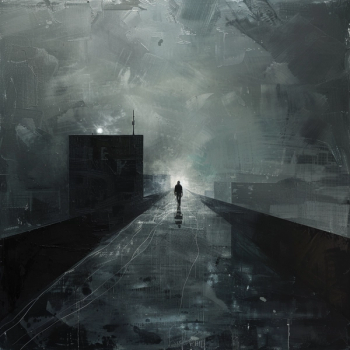
- Psychiatric Times Vol 30 No 3
- Volume 30
- Issue 3
Atheist With a Poet’s Heart
But old colleagues said . . . the holocaust made him an atheist with a poet’s heart, . . . a Jew who loved to stand and chant David’s psalms
-for Leo Kanner, MD
Years before he became our first child
psychiatrist and penned his classic paper on autism,
Kanner was Chaskel Leib, an aspiring teenaged poet
rejected by the Yiddish publishers in Minsk.
Like generations of Jewish boys, he gave up
hope for a literary life and learned medicine,
studying in my great-great-great grandfather’s Berlin.
Then he fled to Yankton, South Dakota,
birthplace of my apple trees, changed
his name to Leo Kanner, and made his last
move to Johns Hopkins where, years later,
my wife sat on his old black leather couch
and learned child psychiatry. They say he loved
to settle on the supple skin, writing papers
with the fountain pen he had used for verse, lucky
to have been a failed poet instead of an artist
slaughtered in Terezin. And after re-reading
his autism paper this morning, I’m dazzled
by our parallels-my teenaged Jewish life saved
from Vietnam by a med school deferment,
my orchard from Yankton, connections
to Berlin, Hopkins and his couch, harmonies
between Chaskel, Leo and Richard that might
make a man believe in God. But old colleagues said
the holocaust made him an atheist with a poet’s heart,
a Jew who loved to stand and chant David’s psalms
at Shabbat dinner, eyes closed, as if the ancient rhyme
and meter were his own, as if God might be listening.
Articles in this issue
almost 13 years ago
Switching Antipsychotics: Why, When, and How?almost 13 years ago
Overdiagnosis: Examine the Assumptions, Anticipate New Bipolar Criteriaalmost 13 years ago
Complementary and Alternative Treatments for Autism Spectrum Disorderalmost 13 years ago
The State of the Mental Health Systemalmost 13 years ago
Clinical Manual of Alzheimer Disease and Other Dementiasalmost 13 years ago
The Cognitive Effects of ECT: Tolerability Versus Safetyalmost 13 years ago
Introduction: Why Does Psychiatry Need the Humanities?almost 13 years ago
Shakespeare and Psychiatry: A Personal Meditationalmost 13 years ago
Psychiatry and ArtNewsletter
Receive trusted psychiatric news, expert analysis, and clinical insights — subscribe today to support your practice and your patients.







